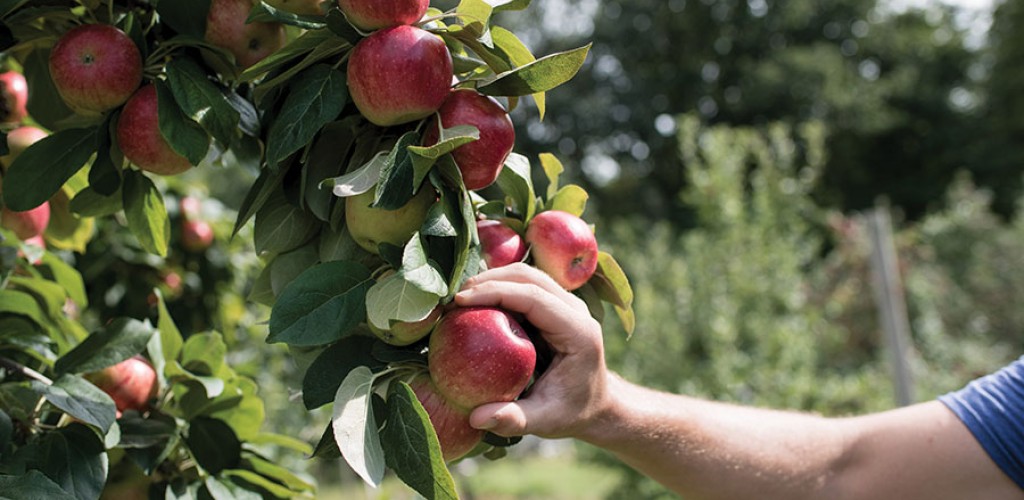periodiCALS, Vol. 8, Issue 1, 2018
To say that hard cider has been making a comeback is an understatement. In the U.S. alone, the hard cider market has increased more than ten-fold in the past decade, with sales reaching $1.5 billion in 2017. And Gregory Peck has been paying attention. Taking advantage of this upward trend, the assistant professor of horticulture has been tapping cider’s full potential to grow New York’s apple market. Now he’s at the forefront of a hard cider renaissance.
“The industry has been booming because cider producers are innovative,” Peck said. “Consumers want to experience something different in their food and drinks. Cider has a rich depth of flavor and range of products that appeal to a large and growing consumer base.”
Of the more than 800 cider producers in the U.S., nearly 100 are now in New York. That growth is no fluke: the state has an excellent climate and soils for growing flavorful cider apples. As consumption has swelled, business opportunities have bloomed for the state’s apple growers, cider producers and people in the agritourism industry. However, they have lacked the necessary research-based information to meet such fast-growing demand, so Peck has been developing both field- and lab-based research that will provide that much-needed guidance.
In New York:
1,365 farms producing
1.2 billion pounds of apples on
40,000 acres
5 million gallons of hard cider produced annually
$44 million contributed in direct economic impacts by cider producers
At LynOaken Farms, a bustling orchard tucked between Buffalo and Rochester and located a few miles from the Lake Ontario shoreline, cider apple trees were planted in 2004 with the goal of using them for cider production at the farm’s sister winery. But the family farm owners couldn’t find much information on how to grow them.
“Greg wants to see the cider industry advance,” said Chris Oakes, production manager at the family farm, which grows 250 acres of apples in addition to other fruits. “He does research right on our farm and shares his data, allowing us to apply it right away. We’re predicting 15 to 20 percent growth per year in cider apple volume over the next four to five years. We’ve been holding steady at 5 to 10 percent growth, so we’re on the cusp of something big.”
Apples for hard cider contain up to ten times more tannins than the culinary apples you find in the grocery store. Tannins, a subset of the naturally produced polyphenols in apples, add to cider’s mouthfeel, creating a more robust and interesting drinking experience. Peck’s lab uses molecular markers to identify the preharvest factors that increase polyphenol development.
While flavor is what consumers notice most, Peck is also exploring ways to increase the quantity of New York grown cider apples, including best practices for fertilizer, crop load and harvest management. He is studying the hard cider supply chain with Cornell Cooperative Extension’s Harvest NY team, and working with the U.S. Department of Agriculture to identify potential new cider apple varieties in their collection of 3,500 unique genotypes.
“Our research is narrowing down the list of optimal cider apple varieties for New York,” Peck said. “We share what we learn directly with our growers to help them select varieties that will work best for high-quality and flavorful cider.”
Steve Selin, orchardist and cider maker at South Hill Cider, is grateful to have someone at Cornell conducting the research and outreach he needs to improve his business. He gained initial confidence to plant his own orchard after visiting a cider apple test plot at Cornell. Having an expert that cideries can turn to for advice helps nurture the entire industry in the state, he said.
“Most of what we know about making cider comes from research done on wine. The work Greg is doing provides us with crucial information we need to take hard cider to a new level,” Selin said.






